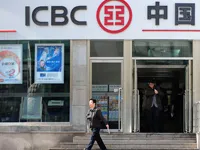
China requires its banks $131bn capital over 6 years
Compliance to stricter rules aims to ensure that banks have sufficient capital to be ready for a crisis that would minimize any government bailout.
Chinese banks may have to raise about 860 billion yuan ($131 billion) of stock over six years to meet stricter capital rules, according to estimates from the industry regulator, a person with knowledge of the matter said.
Lenders are likely to need an additional 1.26 trillion yuan ($192.86 billion) in supplementary capital by the end of 2016, the person said, declining to be named because the calculations aren’t public. The estimates, compiled in January, assume economic growth of 8 percent a year and 15 percent credit expansion, the person said.
Chinese lenders including Industrial & Commercial Bank of China Ltd. sold a combined $70 billion of shares last year after record credit expansion fueled concern that their assets might be eroded by bad debts. Banks’ dependence on loan growth to increase profits means they’ll likely have to raise more equity capital, according to Fitch Ratings.
“Capital erosion is a long-term issue facing Chinese banks because they don’t really have the motivation to reduce reliance on loan expansion,” said Wen Chunling, a Beijing-based analyst at Fitch. “The focus of China’s rules is to ensure that banks arm themselves with abundant capital to be well-prepared for a crisis, so that the cost of any government bailout would be minimized.”
China’s banking regulator has drafted rules forcing banks to have Tier 1 capital ratios of at least 8.5 percent by the end of 2016, a person with knowledge of the matter said in January. The nation’s lenders had an average Tier 1 ratio of 10.1 percent at the end of last year, according to the watchdog.
That’s below the average 12.3 percent among the world’s 100 largest banks by market value, according to data compiled by Bloomberg.
View the full story in Bloomberg.




![Lorem Ipsum [ABF 1]](https://cmg-qa.s3.ap-southeast-1.amazonaws.com/s3fs-public/styles/exclusive_featured_article/public/2025-03/a_hand_pointing_to_a_futuristic_technology_5b87c9d0e3_1.png.webp?itok=2w0y1WhS)


![Cross Domain [Manu + SBR + ABF + ABR + FMCG + HBR + ]](https://cmg-qa.s3.ap-southeast-1.amazonaws.com/s3fs-public/styles/exclusive_featured_article/public/2025-01/earth-3537401_1920_4.jpg.webp?itok=WaRpTJwE)







 Advertise
Advertise

